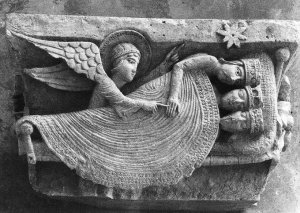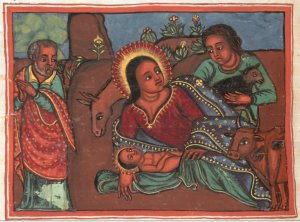“Seeing the Star, the Light!”

Matthew 2:1-12– January 6, 2026
What do we do when everything is dark? When there is a power outage, and the electricity gets shut off? That happened to us in our Chicago suburb several nights ago, when there were huge wind gusts and intense, high winds most of the overnight hours. What do we do when there is no power, and when our whole lives revolve around electricity?
This past week in the United States has been head-spinning, from a number of different directions. I am not going to dig down on any one particular horrible happening, but I will concentrate instead primarily on the Scripture lessons for Epiphany, January 6th. We will highlight Matthew 2:1-12, and secondarily also mention Isaiah 60:1-9.
As the Magi approached Palestine in following the Star of Wonder, they needed more specific guidance. They wanted instructions from a local point of view. Let us see what Matthew has to tell us. “After Jesus was born in Bethlehem in Judea, during the time of King Herod, Magi from the east came to Jerusalem 2 and asked, “Where is the one who has been born king of the Jews? We saw his star when it rose and have come to worship him.”
The tyrant Herod, a narcissistic, blood-thirsty despot, was horribly dismayed by these foreign VIPs coming to his court in Jerusalem, out of the blue. They came with legitimate questions, and in the days before GPS and Google Maps, they wanted some direction, a local point of view, a viewpoint on their specific questions.
I think I know the answer already, but do you think King Herod had any interest in following God and God’s guidance – for anything?
Except, the Hebrew Scriptures were pretty specific about many of God’s prophecies. King Herod calls the priests together and asks – privately – where the Messiah, the King, is to be born. After finding out that the prophesied birthplace was right nearby, in the neighboring town of Bethlehem, Herod sends the Magi there. He tells these minor nobles to find the newborn Baby and then to report back to him. Supposedly because Herod also wanted to “worship” him. Except, I think we all know exactly what Herod wanted to do to the Baby Jesus.
The star continued to lead the Magi to Jesus. We know today that Jesus is “the light of the world, the revelation of divine love who came to dwell among us.” [1] This light of the world, this divine love is certainly a bright Light that shines in the darkness. Certainly, Jesus is a Light to lighten all peoples. However, the Magi do not know this yet. They are still on their way.
This reading from Matthew 2 describes the journey of the wise men, the Magi, following the star. What do we use today as we figure out our directions in life? What do we do when we need guidance for our significant life journeys? How do you and I determine which path to take when the way ahead gets foggy or dark or just plain unknown?
If we turn to our reading from Isaiah 60, we see more about light – the light and the glory of the Lord. “Arise, shine, for your light has come, and the glory of the Lord rises upon you. 2 See, darkness covers the earth and thick darkness is over the peoples, but the Lord rises upon you and his glory appears over you.”
As I thought more deeply on these two connected Scripture readings, the idea of Light coming out of the darkness came to me again, strongly. “’Arise, shine’ is not about enjoying light. It is a command to reflect and spread light.” [2] We are invited to consider, to ponder the difference in basking in light and shining out in the darkness. How did the Magi follow their Star, their Light, in a way that was most wonderful to them? How are each of us able to follow the Light and the information we have available to us in order to proceed along the paths that God has for each of us? Even in sheer darkness, when we are dispirited and alone?
These past weeks have been dark weeks, no matter where people stand on the political spectrum. This is a time to truly seek God’s insight and God’s guidance.
It does not matter when in history we find ourselves, it does not matter how dark the current times are or how much tumult, horror or disruption is happening, either locally or nationally. In both Isaiah 60 and Matthew 2, we read about a clarion call to follow the Light. Yes, it is a challenge to follow God’s Light through the present darkness! And yes, many other things can distract us and try to pull our attention away from following God’s Light. [3]
Thank God we have been given the Star of wonder to follow, just like the Magi. Even when the Herods try to distract those who follow, we all can “arise and shine!” We all have the opportunity to shine in the darkness, wherever we are in life.
Follow the Star. Follow the true Light, Jesus Christ. Be a light in the darkness.
Alleluia, amen.
(Suggestion: visit me at my other blogs: matterofprayer: A Year of Everyday Prayers. #PursuePEACE – and A Year of Being Kind . Thanks!
[1] https://www.umcdiscipleship.org/worship-planning/epiphany-of-the-lord-year-a-lectionary-planning-notes/epiphany-of-the-lord-year-a-youth-lessons
[2] https://worshipingwithchildren.blogspot.com/2012/11/year-c-epiphany-january-6-2013.html
[3] https://www.umcdiscipleship.org/worship-planning/epiphany-of-the-lord-year-a-lectionary-planning-notes/epiphany-of-the-lord-year-a-youth-lessons









